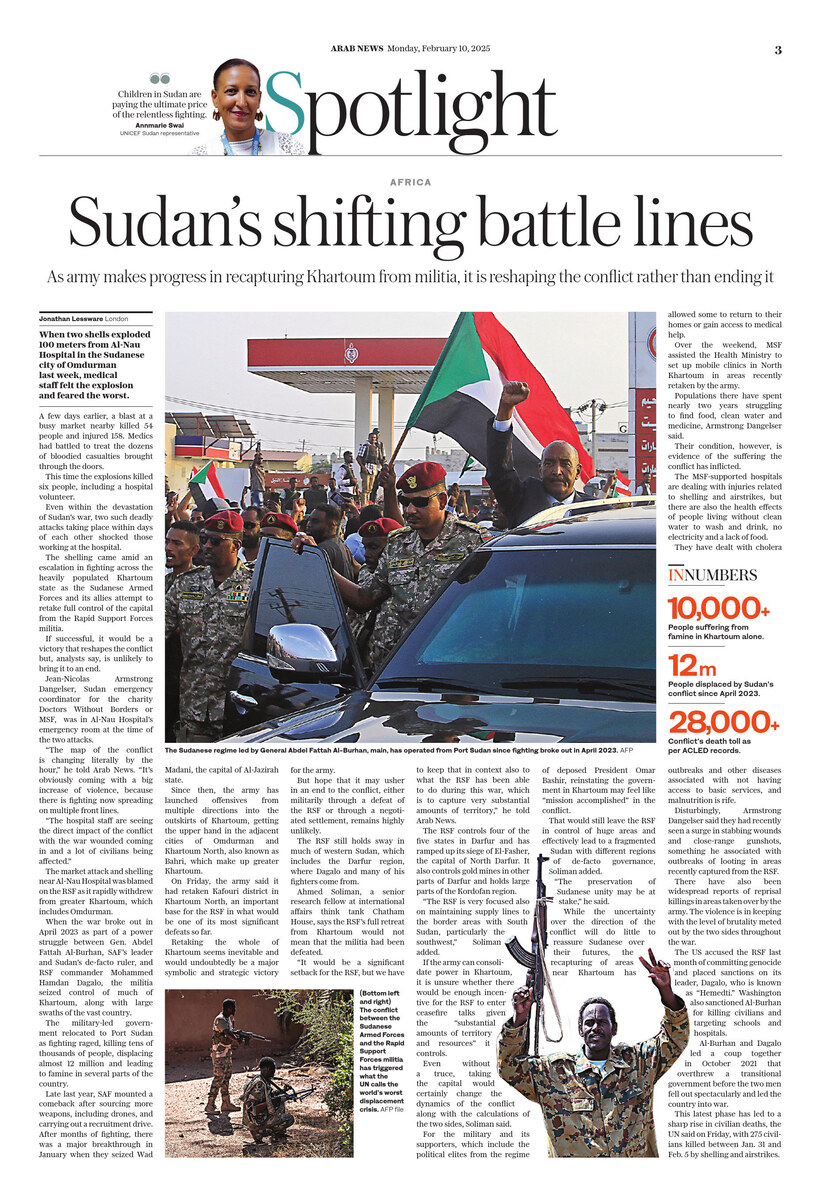BEIRUT: Brazil’s foreign minister during a visit to Beirut called on Israel to end its attacks on southern Lebanon.
Mauro Vieira, who is on a wider diplomatic tour of region, was welcomed to the Lebanese capital by Caretaker Prime Minister Najib Mikati.
The foreign minister condemned Israel for violating international resolutions during its war on Hamas and skirmishes with Hezbollah on Lebanon’s southern border.
Brazil contributes a peacekeeping military unit to the UN Interim Force in Lebanon, known as UNIFIL.
Vieira briefed Mikati on the outcome of his visits to Saudi Arabia and the Occupied Palestinian Territories.
He said that Brazil, through a broader coalition of states, is aiming to solidify Palestine’s membership in the UN.
His remarks came as Maj. Gen. Aroldo Lazaro, UNIFIL’s head of mission and force commander, called on all parties involved in skirmishes across southern Lebanon to abide by UN resolutions.
Israeli shelling and raids in Lebanon prevented UNIFIL from commemorating the 46th anniversary of its establishment.
The mission holds its yearly ceremony at its headquarters in Naqoura, with diplomats, Lebanese army officials and local mayors usually in attendance.
The UN Security Council set up UNIFIL under Resolutions 425 and 426 on March 19, 1978, to oversee Israel’s withdrawal from Lebanon and help the Lebanese government regain control of its territory.
UN Resolution 1701 — which ended a destructive war between Hezbollah and Israel in 2006 — strengthened the presence of UNIFIL and entrusted the mission with monitoring a ceasefire.
Under the resolution, the Lebanese army was deployed for the first time in decades on the border in a bid to prevent any illegal military presence.
On Tuesday, Lazaro paid tribute to civilian and military peacekeepers “who have served the mission over the years, including over 330 members who have died serving for peace.”
In a speech, he said: “Current events have challenged Resolution 1701, but it remains as relevant and necessary as ever.
“Our more than 10,000 peacekeepers from 49 countries continue their critical monitoring, de-escalation and liaison work, and we stand ready to support a peaceful resolution to the current crisis.
Lazaro added: “The sacrifice of those who lost their lives here is not in vain.
“Our efforts today, in these challenging circumstances, are a tribute to their memories. Their sacrifice motivates us to continue our work toward de-escalation in the short term and peace in the long term.
“The peacekeepers, alongside their civilian colleagues, and despite relentless and daily exchanges of fire, have stayed their course in monitoring the fast-evolving situation in south Lebanon, maintaining high operational tempo and visible presence, and assisting local communities.”
Lazaro’s comments follow mounting concern over Israeli attacks on the border region. In some cases, artillery shells have hit targets close to UNIFIL positions, resulting in minor injuries to several peacekeepers.
Israel also struck a joint patrol between UNIFIL and the Lebanese army earlier this month.
UNIFIL has repeatedly expressed concerns over the escalating conflict between Hezbollah and Israel.
Periodic tripartite meetings in Naqoura between representatives of the Israeli and Lebanese armies, overseen by UNIFIL, had been suspended since the outbreak of hostilities in October last year.
But the two sides have agreed to resume the talks as part of a French plan to quell tensions on the border.
Meanwhile, Lebanon on Tuesday filed a complaint to the UN over Israel’s jamming of GPS systems at Beirut’s Rafic Hariri International Airport.
Caretaker Public Works Minister Ali Hamieh said Israel had taken the measure in some airports across the region following the outbreak of violence last October.
The jamming has allowed Israeli drones to carry out assassinations deep into Lebanese territory.
Authorities at the airport and seaports across Lebanon have adopted backup systems to continue operations.
Brazilian FM in Beirut demands end to Israeli attacks on southern Lebanon
https://arab.news/na28u
Brazilian FM in Beirut demands end to Israeli attacks on southern Lebanon

- On UNIFIL’s anniversary, commander urges compliance with UN Resolution 1701
- Lebanon files UN complaint over Israel’s jamming of Beirut airport




























